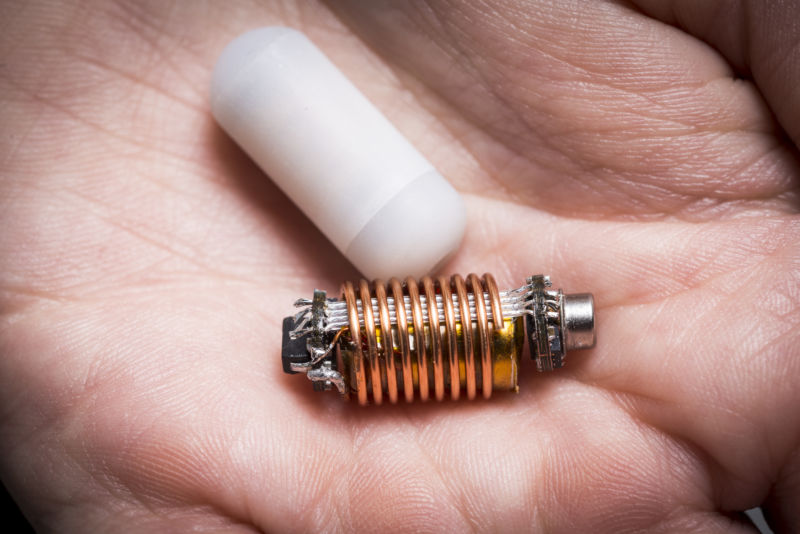Scientists often hope to break ground with their research. But a group of Australian researchers would likely be happy with breaking wind.
The team developed an ingestible electronic capsule to monitor gas levels in the human gut. When it’s paired with a pocket-sized receiver and a mobile phone app, the pill reports tail-wind conditions in real time as it passes from the stomach to the colon. The researchers, led by Kourosh Kalantar-Zadeh of RMIT University and Peter Gibson of Monash University, reported their invention Monday in Nature Electronics.
The authors are optimistic that the capsule’s gas readings can help clear the air over the inner workings of our intricate innards and the multitudes of microbes they contain. Such fume data could clarify the conditions of each section of the gut, what microbes are up to, and which foods may cause problems in the system. Until now, collecting such data has been a challenge. Methods to bottle it involved cumbersome and invasive tubing and inconvenient whole-body calorimetry. Popping the electronic pill is a breeze in comparison. And early human trials have already hinted that the pill can provide new information about intestinal wind patterns and gaseous turbulence from different foods.
“Our pilot trial illustrated the significant potential role for electronic-based gas-sensing capsules in understanding functional aspects of the intestine and its microbiota in health and in response to dietary changes,” the researchers concluded.
The authors are currently setting up a commercial company to further develop and test the capsules.
Toot tracker
For their pilot study, the researchers beefed up a prototype they had previously tested in pigs. The capsule is 26mm in length, with a 9.8mm external diameter—like a large vitamin. Its polymer shell surrounds sensors for temperature, CO2, H2, and O2, as well as a button-size silver oxide battery and a transmission system. One end of the capsule contains a gas-permeable membrane that allows for fast diffusion of gut gases.
In the trial data published Monday, researchers tested the capsule in six healthy people. For the first, researchers monitored the pill’s intestinal trek using ultrasound and linked locations with gas profiles. Overall, it took 20 hours to get from one end to the other, spending 4.5 hours in the stomach, 2.5 hours in the small intestine, and 13 hours cruising through the colon.
In that time, the pill took continuous gas measurements, revealing potentially useful information in addition to gut position. For instance, CO2 and H2 levels peaked in the early hours of its time in the colon while O2 levels crashed throughout this stretch of the trip. That jibes with the horde of anaerobic bacteria (those that live without oxygen) that inhabit the colon. There, they ferment undigested food bits into short-chain fatty acids that play significant roles in our health and metabolism.
...







 Reply With Quote
Reply With Quote
Connect With Us